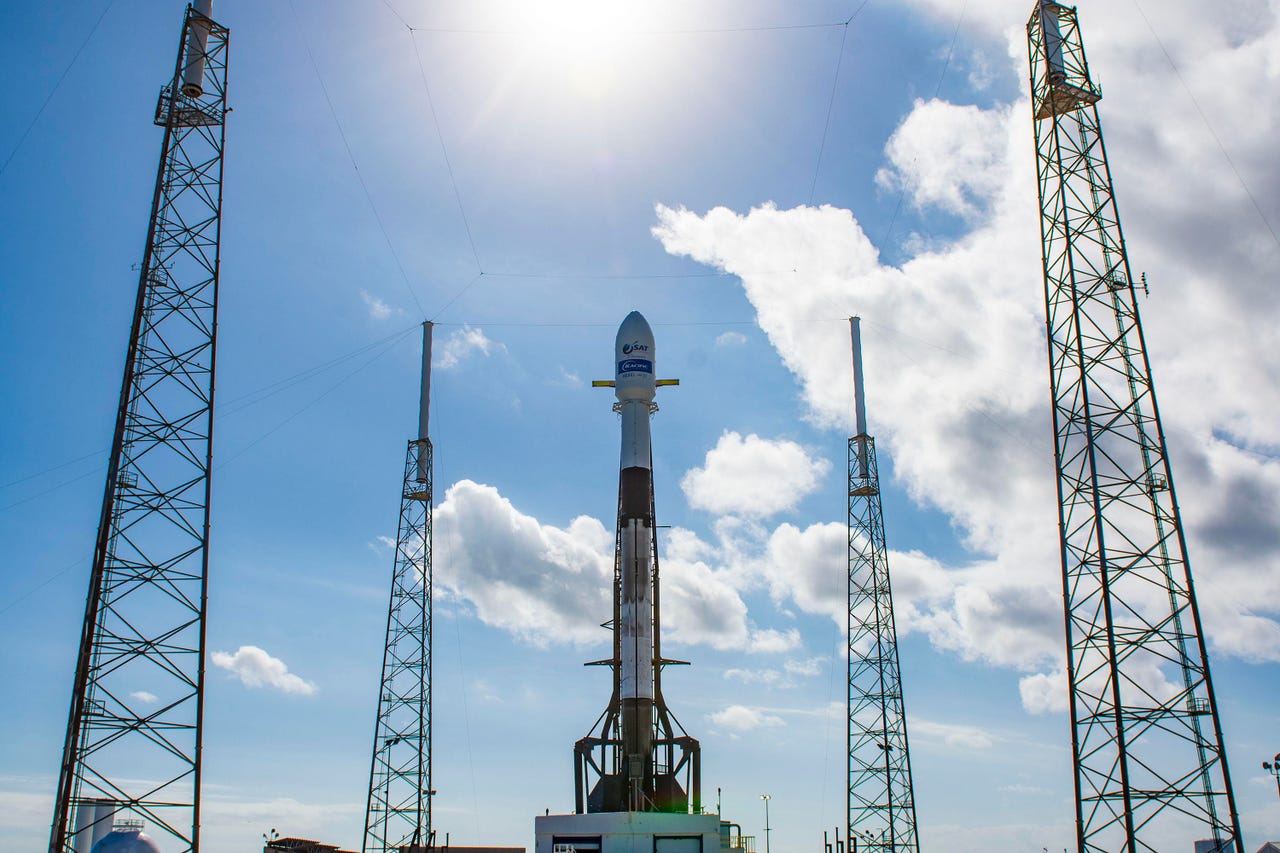SpaceX successfully launches Kacific 100Mbps satellite


SpaceX on Monday launched a communications satellite for Kacific Broadband Satellites and SKY Perfect JSAT Corporation that will be used to provide mobile and broadband services with speeds of up to 100Mbps in the Asia-Pacific region.
The satellite, which has two payloads called Kacific1 and JCSAT-18, was launched inside a Falcon 9 rocket at 7:10pm local time from Cape Canaveral Air Force Station, Florida.
Production of the satellite by Boeing began in 2017. The satellite is based on the aerospace manufacturer's 702 Boeing satellite.
Kacific's portion of the payload will provide broadband services, via the projection of 56 Ka-band high-throughput spot beams, to 25 countries throughout South East Asia and the Pacific Islands.
"[Kacific1's] range of services, from mobile backhaul to broadband internet via VSAT terminals, will provide a catalyst for positive change in the nations it is about to serve. I'm thrilled to start seeing the social and economic impact of Kacific1," said Christian Patouraux, Kacific founder and CEO.
The satellite will provide coverage for remote areas in American Samoa, Bangladesh, Bhutan, Brunei, Cook Islands, East Timor, Federated States of Micronesia, Fiji, French Polnesia, Guam, Indonesia, Kiribati, Malaysia, Myanmar, Nepal, New Zealand, Niue, Northern Mariana Islands, Papua New Guinea, the Philippines, Samoa, Solomon Islands, Tonga, Tuvalu, and Vanuatu. Kacific1 will cover Indonesia,
Kacific1 will cover Indonesia, The Philippines, Timor-Leste and South Asia with 28 spot beams, while the Pacific Islands and New Zealand will be covered with a further 28 beams.
According to Kacific, the launch of Kacific1 is aimed at providing connectivity for "previously unserved or under-served populations with affordable, high-speed broadband for healthcare, education, government services, businesses, and disaster relief".
The satellite's services will be launched at the start of next year following a sequence of in-orbit manoeuvres and tests that are expected to take approximately six weeks, a Kacific spokesperson told ZDNet.
Earlier this month, Kacific announced it had secured $160 million in closed credit facilities to fund the construction of the Kacific1 payload and the associated infrastructure and launch costs.
The remaining payload in the Boeing satellite, owned by SKY Perfect JSAT Corporation, will provide satellite broadband services to its customers in the Asia-Pacific region, as well as the far eastern part of Russia.
Updated at 3:27pm AEST, 17 December 2019: added from Kacific founder and CEO.
Related Coverage
Tonga signs 15-year satellite deal after January cable outage
Access to the Kacific1 satellite will provide 89 outer islands with broadband speeds comparable to those seen in Tonga's major cities.
Kacific to provide 100Mbps satellite broadband to remote APAC
Beating NBN's 25Mbps service, the Kacific-1 satellite will provide satellite broadband with speeds of up to 100Mbps upon launch in 2019 to more than 20 countries in South East Asia and the Pacific.
Elon Musk's internet from space: 60 new SpaceX satellites bring US service closer
SpaceX's Falcon 9 launch on Monday carried another 60 Starlink internet satellites to low Earth orbit.
SpaceX launches 60 Starlink satellites
The payload sent on the Falcon 9 rocket weighs around 30,000 pounds.
HAL, meet CIMON 2: Space station robot can detect astronaut emotions (TechRepublic)
Built-in privacy controls prevent IBM's CIMON 2 from being an always-on eavesdropper.